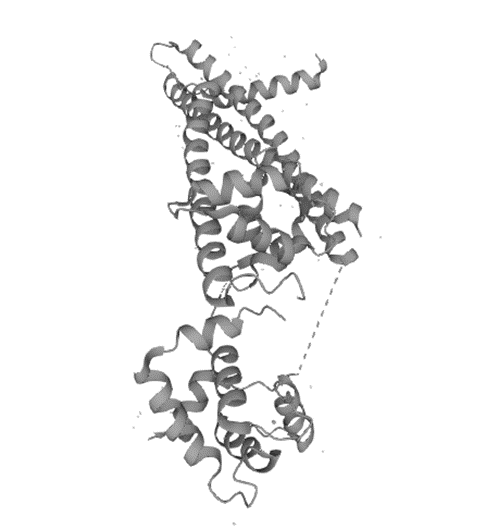Service Line:+86-022-82164980
Address:FL-4, Building A5, International Enterprise Community, Tianjin, China
Email:[email protected]
Myocardial tissue damage markers include cardiac troponin (cTnT), myoglobin (MYO), cardiac fatty acid binding protein (H-FABP), and cardiac creatine kinase isoenzyme (CK-MB). Among them, cardiac troponin I (cTnT) is a protein encoded by the TNNT2 gene, also known as troponin T2, the cardiac-type gene, which encodes the cardiac isoform of troponin T. CTnT is located in the thin filaments of the transversely striated muscle and responds to changes in intracellular calcium ion concentration by regulating the way muscle contraction occurs. Also, as a major specific marker of cardiomyocyte injury, it has higher specificity, sensitivity, and accuracy in the diagnosis of acute myocardial infarction (AMI) compared to other markers.
Biological properties of cTnT
Cardiac troponin (CTnT) has a highly specific antigenic determinant cluster and is an inherently stable, hydrophilic molecule. cTnI exists in two forms in human cardiomyocytes, cTnT-C-I complex and free cTnT. A small fraction of free protein (6%-8%) is present in the periplasm, but the majority of cTnT is in the form of the C-T-I complex. integrated in myofibrils. When the myocardium is not damaged or the damage is minimal, the content of cTnT in human blood is extremely low, so the target of cTnT in the diagnosis of myocardial injury is more than the traditional enzyme index.

Figure 2 Schematic representation of CTnT protein structure.
CTnT mutations affect cardiac progenitor cell differentiation:
In general, specialized stem cells with limited differentiation and proliferation capabilities are collectively referred to as cardiac progenitor cells (CPC). Cardiac stem cells (CSC), as one of their sources, can be differentiated into CPCs, which play an important role in cardiomyocyte renewal and repair. In the process of inducing pluripotent stem cells to derive cardiomyocytes, RNA sequencing clarified the transcriptome sequences of pathogenic CTnT mutations, leading to 51 CTnT mutations, including 30 pathogenic/probably pathogenic mutations and 21 mutations of unknown significance. And the 51 CTnT mutations were functionally categorized.
One CTnT mutation is associated with hypertrophic cardiomyopathy, which enhances the contraction of cardiac microtissues, and another CTnT mutation is associated with dilated cardiomyopathy, which attenuates the contraction of cardiac microtissues; however, both mutations result in alterations in the affinity of fine myofilaments for Ca2+.
CTnT protein-associated diseases:
|
Disease Name |
Synonyms |
|
Cardiomyopathy, Dilated, 1d |
Dilated Cardiomyopathy 1d; CMD1D; Left Ventricular Noncompaction 6; Included Lvnc6; Included Left Ventricular Noncompaction 6; Cardiomyopathy, Dilated 1d |
|
Cardiomyopathy, Familial Hypertrophic, 2 |
Hypertrophic Cardiomyopathy 2; CMH2; Cardiomyopathy,Hypertrophic, 2; Cardiomyopathy Familial Hypertrophic 2;Cardiomyopathy, Familial Hypertrophic 2; Cardiomyopathy, Hypertrophic, Familial, Type 2
|
|
Cardiomyopathy, Familial Restrictive, 3 |
RCM3; Restrictive Cardiomyopathy 3; Familial Restrictive Cardiomyopathy 3; Cardiomyopathy, Familial Restrictive 3; Cardiomyopathy, Restrictive, Type 3 Familial, Type 3 |
The inventory of reagents associated with cTnT (Cardiac Troponin) that KMD Bioscience can offer:
|
CAT# |
Product Name |
Species |
Host |
Application |
Size |
Product Type |
|
PA198 |
Human |
Mouse |
LFIA (Lateral-Flow Immunochromatographic Assay), CLIA (Chemiluminescence Immunoassay), ELISA |
1mg |
Raw Materials |
|
|
PA199 |
Human |
Mouse |
LFIA (Lateral-Flow Immunochromatographic Assay), CLIA (Chemiluminescence Immunoassay), ELISA |
1mg |
Raw Materials |
|
|
PA5382 |
Human |
Rabbit |
WB, IHC |
50ul, 100ul |
Research Reagents |
|
|
MA1146 |
Human |
Rabbit |
WB, IHC, IF |
50ul, 100ul |
Research Reagents |
KMD Bioscience, as a supplier of in vitro diagnostic raw materials, provides high-quality diagnostic antigen and antibody raw materials for the IVD industry for over several years, which are suitable for a variety of assay platforms, such as flow, colloidal gold, CLIA-Chemiluminescence Immunoassay, Turbidimetric inhibition immunoassay, etc. KMD Bioscience has a monoclonal antibody production. With four platforms, including monoclonal antibody production platform, polyclonal antibody production platform, phage antibody library technology platform, and Antibody engineering, KMD Bioscience is committed to the rapid development and large-scale production of proteins and antibodies for in vitro diagnostics. KMD Bioscience's antibody diagnostic raw materials and antigen diagnostic raw materials are strictly monitored during the R&D and production phases, and the performance indexes (specificity, activity, stability, etc.) of antibodies/antigens are analyzed to ensure that IVD raw materials are characterized by small batch-to-batch/intra-batch variations, wide linear ranges, good stability, high sensitivity, and so on. KMD Bioscience can create tailor-made one-stop solutions according to the needs and application scenarios of Scientists around the world, fully supporting the development of in vitro diagnostic reagent products.